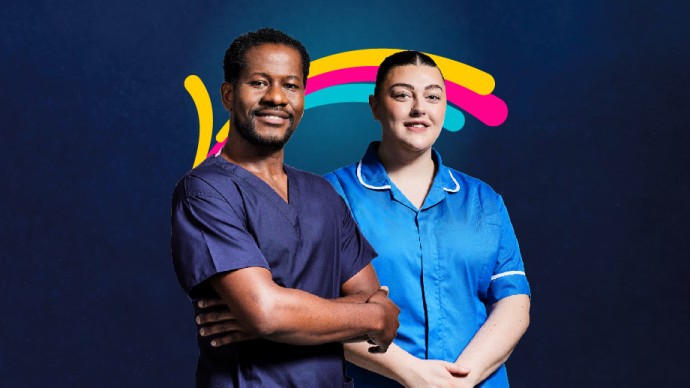Pioneering healthy hearts
Pioneering healthy hearts

Standfirst
As the University celebrates its 200th anniversary, this piece explores the role that Manchester Metropolitan University plays in transforming lives through groundbreaking research that informs and influences health advancements.
Story intro
Every four minutes, someone in England will die of cardiovascular disease.
They are cruel diseases that affect so many – the latest figures from the World Health Organization show that these diseases are the leading cause of death globally, taking an estimated 17.9 million lives each year.
But there is hope thanks to research at Manchester Met, which, through partners such as the British Heart Foundation, is having an impact on people’s lives.
Improving understanding
Cardiovascular disease is a general term for conditions affecting the heart or blood vessels and is usually associated with a build-up of fatty deposits inside the arteries, leading to an increased risk of blood clots.
Through their research, scientists at Manchester Met are improving our understanding of the underlying mechanisms that cause these blood clots.
They are looking to unpick exactly what is happening inside the blood vessels, hoping that further understanding of what is causing the problem will lead to a solution.

Dr Amanda Unsworth, Senior Lecturer in Haematology, explains how blood clots form and why they don’t always help as they should.
She said: “The formation of a blood clot is the body’s natural approach to prevent itself from bleeding.
“When we damage a blood vessel, this leads to a tear in the vessel wall that allows blood to leak out. The body responds to this by forming a blood clot, which creates a plug that stops us from bleeding.
“But, while blood clots work really effectively to prevent us from bleeding out, there are certain triggers that cause them to form when they shouldn’t, and this is when things like heart attacks and strokes occur.
“If we can understand why this is happening, we can try to find ways of preventing it.”
Key stats one
Main story
Treatment and prevention
As well as understanding the causes of blood clots, Dr Unsworth’s research is exploring how treatments and medicine may be improved to help prevent events such as heart attacks and strokes.
She said: “Most people will have heard of Aspirin and other drugs that target platelets, and whilst they are good, they are only 20% effective in preventing future events such as a heart attack.
“They are also less effective in individuals that have diabetes, hyperlipidaemia or inflammatory diseases. So unfortunately, the groups of individuals that are at an increased risk of a blood clot are the ones where current drugs and treatments are a lot less effective.”
If we can understand why this is happening, we can try to find ways of preventing it.
Dr Sarah Jones, Reader in Thrombosis and Haemostasis, is also interested in understanding the processes behind the cause of blood clots.
Her research is exploring how the endothelial cells that line the blood vessels communicate with the platelets in the blood, which are responsible for forming blood clots.
She explains how her work is helping to develop knowledge and practice in this area when it comes to introducing new drugs and treatments.
Dr Jones said: “One of the main issues with developing and testing drugs to treat heart attacks and strokes is our over-dependence on animal models. As a result, I have been looking at developing fully human models and the potential of using placentas discarded after births.
“This is a valuable supply of human blood vessels that could be used in research with the purpose of helping save lives in the future.
“What we hope to do with these models is flow blood through them and analyse blood clot formation.
“So, as well as investigating how the blood vessel wall and platelets can be targeted with drugs, we are also developing models so that we can test these drugs in a more humanised system.”
Improving people’s lives
Working with partners including the British Heart Foundation, both Dr Jones and Dr Unsworth are ensuring that their research is having an impact on society and improving people’s quality of life.
Dr Jones said: “It’s always nice to see how you’re giving back and that we are doing this research for those people who have been affected by these issues and are now working hard to provide funding through their volunteer work.”
And for Dr Unsworth, it is these partnerships that are the key to connecting the science to the frontline organisations and people that can deliver the changes and interventions needed.
The ultimate goal is to develop a personalised treatment strategy for patients that increases their lifespan and their quality of life.
She said: “The ultimate goal is to develop a personalised treatment strategy for patients that increases their lifespan and their quality of life.
“Lives are changed by having a blood clot, so if we can reduce the risk or reduce the likelihood of something like that happening again, then that would be a huge success.”
About 200 years
Manchester Met celebrates two centuries of driving progress through excellent education and research.
-
![200 years 1824-2024]()
200 years
Find out more -
![Two nurses standing together and smiling]()
Transforming health
Find out more


